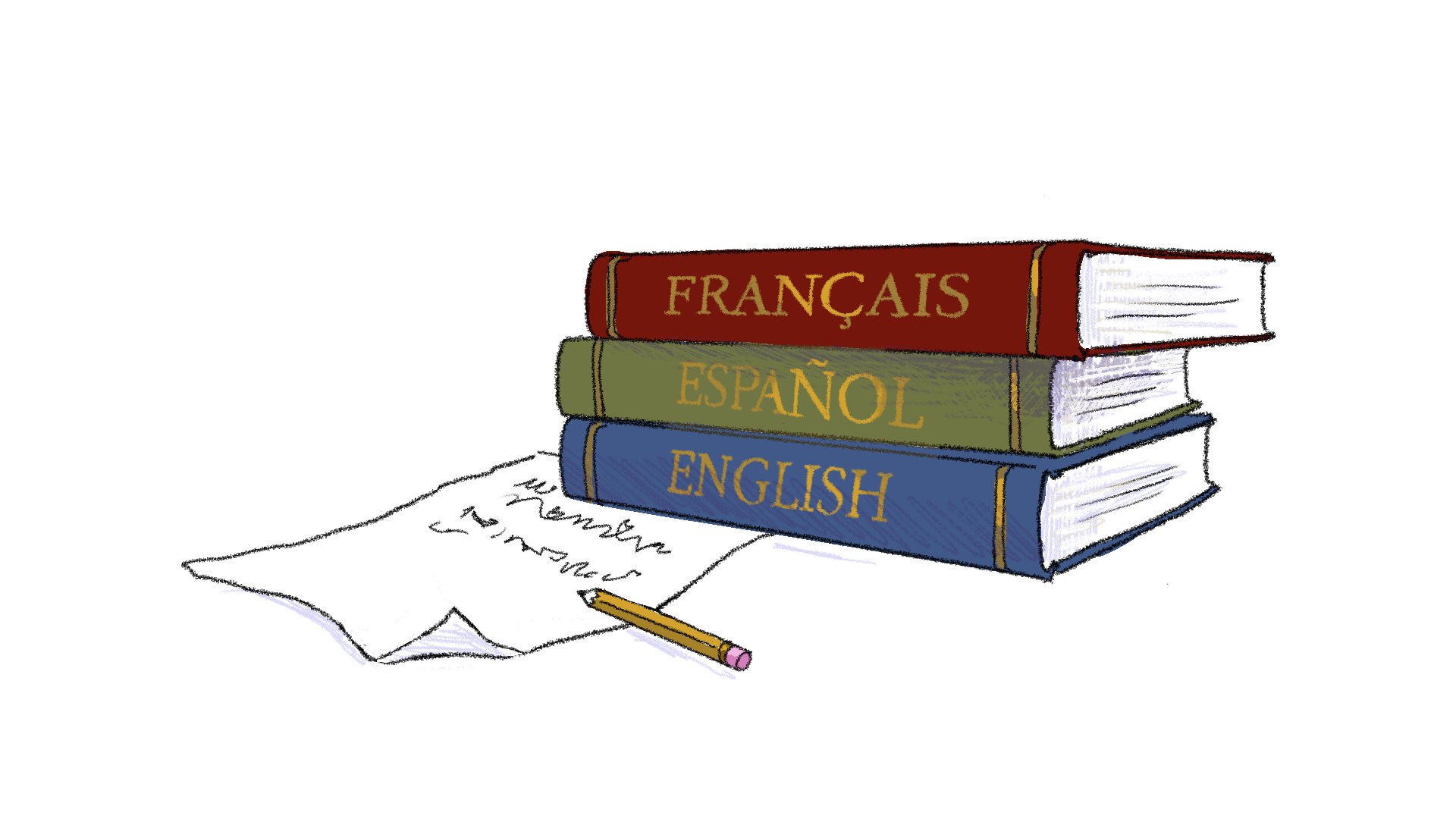OPINION: In 8th grade, my school gave us the option to learn a second language. My teachers explained the practical benefits, such as enhancing college applications, resumes or traveling without perpetuating stereotypes. These were answers to the unspoken question of why bother learning another language when English suffices for daily life.
What was the end goal? Opting to study French, my answer differs: it is better not to have an end goal. It is the process that enables you to explore the world and to channel the curiosity of your inner child.
One day, I was curious about the stereotypes associated with speaking French with an American accent. This led me to discover that the Google search bar can understand various languages. After scrolling through Reddit, I found that there is no clear agreement on this topic.
The Instagram algorithm also operates in mysterious ways. Simply following a few accounts in a different language can prompt it to display content in that language. It was interesting, to say the least, since some of the jokes and memes crossed over while others didn’t. While caution is advised, it is a great excuse to keep scrolling.
By learning a second language, you can open up a whole new world of books, music, podcasts and movies. You don’t need to understand every word in a podcast to gain something from it, even if it’s just discovering that “a walrus” in French is “un morse.” Similarly, you can still appreciate listening to a song without understanding all of the lyrics. Although, if you’re like me, you will want to have some idea of the song’s meaning.
Not having an end goal allows you the freedom to determine the level of discipline you apply to studying a new language.
Do you ever revisit your favorite childhood books or movies only to find them more boring than you remember them?
Indulging in nostalgia in another language solves that problem. Variety is key, after all. It’s fun to read or watch familiar content in a different language, but it’s also rewarding to experience content that is unique to your second language.
Perhaps the most challenging aspect is letting go of the desire to be perfect.
Somewhere along the journey from childhood to adulthood, we develop a fear of looking silly or making mistakes. It’s important to accept that you will mispronounce words, have questionable grammatical structures and use incorrect terms in a way that may range from minor to humorous.
If you can embrace this mindset, you’ll find that achieving success in a second language is attainable. Concerns that may have troubled you in your native language, such as making the right impressions, become less of a priority. The focus shifts to simply receiving a response that confirms you have effectively communicated your intended question.
Using your second language while traveling is an incredible experience, but you don’t have to travel far to practice a new language.
When I started learning French, I was aware that it’s spoken in Maine. However, I never expected to use it while playing cornhole, dining at Thai Orchid or visiting the Umbrella Cover Museum on Peaks Island. It may be the case that no one in your community speaks the language you’re learning, but it’s also possible that you just haven’t noticed yet.
I’ve found that the best way to begin learning a new language is through a class, as it provides a solid foundation. However, if your preferred method of language learning involves listening to music, using an app, participating in a club or attending a language table, go for it.
Learning a second language provides an opportunity to view things from a new perspective, with a fresh set of words at your own pace. It’s like opening a door to another world — you won’t truly understand what lies ahead until you step through.










